Artists
Cristian Mandeal
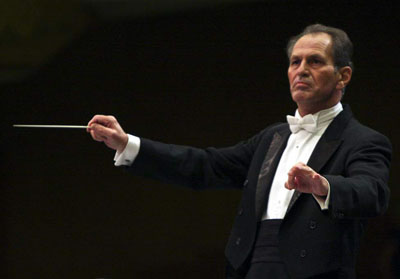 During his 40 years of continuous conducting activity, Cristian Mandeal has exercised his profession both abroad and in Romania. He studied at the “Ciprian Porumbescu” Conservatorium for 10 years, completing his studies in Berlin (Herbert von Karajan 1980) and in Munich (Sergiu Celibidache 1990). He began as a corepetitor at the National Romanian Opera in Bucharest (1974 – 1977), later becoming a conductor of the Philharmonics in Targu Mures (1977 – 1980), Cluj (1980 – 1987) and Bucharest (1987 – 2009).
During his 40 years of continuous conducting activity, Cristian Mandeal has exercised his profession both abroad and in Romania. He studied at the “Ciprian Porumbescu” Conservatorium for 10 years, completing his studies in Berlin (Herbert von Karajan 1980) and in Munich (Sergiu Celibidache 1990). He began as a corepetitor at the National Romanian Opera in Bucharest (1974 – 1977), later becoming a conductor of the Philharmonics in Targu Mures (1977 – 1980), Cluj (1980 – 1987) and Bucharest (1987 – 2009).
He was an Artistic Director of the “George Enescu” International Festival and Contest, 2001 and 2003 editions. As Principal Conductor and General Director of the “George Enescu” Philharmonic (1991 – 2009), he raised the level of the philharmonic to the highest standards, turning it into a prestigious institution of Romania.
Cristian Mandeal has conducted hundreds of concerts abroad as a guest conducter of tens of orchestras on 4 continents, in 35 countries and 31 capitals.
In parallel to his distinctions in Romania he was appointed as Artistic Director of the Northern Israeli Orchestra - Haifa (1999 - 2002) and of the National Basque Orchestra – San Sebastian (2001 – 2008), a permanent conductor of the “Haydn Orchestra” di Bolzano e Trento (2000 – 2003), guest principal conductor of the “Halle” Orchestra of Manchester (2005 – 2010) – the first winner of this title in the entire 150 years existence of this orchestra-, of the Berlin Philharmonic (2006 – 2007 season) and of the Copenhagen Philharmonic (2006 – present).
Cristian Mandeal has a both symphonic and orchestra vast repertoire, with a focus especially on the music of the 19th century and of the first half of the 20th century. He has conducted over 60 first absolute auditions, especially of Romanian composers, but also of foreign composers, part of which have been dedicated to him. Since 2008 he is President of the “George Enescu Society” of London.
He has constantly conducted youth orchestras and he has held master classes in Europe, Asia and America. He is both member and president of juries of international conducting contests.
He has received numerous awards and prizes both in Romania and abroad: Knight and Member of the Honor Council of the National Order “For Merit-The Great Cross”; the Italian Order “The Star of Italian Solidarity” – High Officer degree; the Prize of the Romanian Union of Composers (twice); the Prize of the Romanian Cultural Foundation (for his exceptional contribution in the name of the Romanian art in the world); the Radio Cultural Award (for promoting Romanian cinducting art in the world); Ionel Perlea Award; Dinu Lipatti Award; Cultural Merit Medal 1dt class; George Enescu Medal. He is an honorary citizen of the city of Brasov and DHC of the Music Academy of Cluj-Napoca.
A point of great interest in the most recent period of activity of Cristian Mandeal is represented by the collaboration with the Romanian Youth Orchestra that he cultivates, educates and conducts since its founding (2008), bringing it in a record time at an impressive level for the Romanian culture.
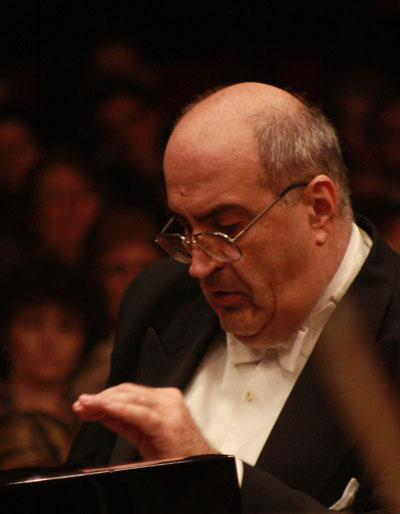 Born in Bucharest in the family of an elite aviation officer, Dan Grigore had his debut at 14 years old, within an Enescu chamber concert, together with famous artists of the time.
The Princess Maria Cantacuzino-Enescu has awarded him a special scholarship: the privilege to study on George Enescu’s piano (1961-1965).
Born in Bucharest in the family of an elite aviation officer, Dan Grigore had his debut at 14 years old, within an Enescu chamber concert, together with famous artists of the time.
The Princess Maria Cantacuzino-Enescu has awarded him a special scholarship: the privilege to study on George Enescu’s piano (1961-1965).
He received the scholarship awarded by Nadia Boulanger from the American Conservatory of Fontainebleu (1968), a two-year scholarship from the University of Madison – Wisconsin – USA (1969 – 1971) and a one-year scholarship for the famous classes of conductor Sergiu Celibidache (1979), all of which were rejected by the Romanian authorities of that time.
Invitation from the American government for a one-month study visit in the USA within the International Visitor programme, in 1987, rejected by Elena Ceausescu.
He studied with the Academicians Mihail Jora and Florica Musicescu – the professors of Dinu Lipatti – at whose recommendation he obtained a scholarship at the Rimski-Korsakov Conservatory in Sankt-Petersburg, between 1962-1964 (class of prof. Tatiana Kravcenko) and the Heder scholarship for a year of studies at the Music Academy of Vienna in 1969, at the class of the famous professor Richard Hauser.
Dan Grigore is a winner of the National Contest George Enescu 1960, a laureate of the International Contests George Enescu 1961, 1967 and Montreal 1968.
During 1967 – 1979 and 1990 – 2001 he is a professor at the Conservatoire in Bucharest. His career, both at home and abroad, was severely affected during the Ceausescu regime which constantly punished his non-collaborationism, refusing to him even the visas for artistic tours.
However, his reputation has grown continuously and he received numerous invitations both in West and east Europe, being well-received by the public and compared by the critics to the world’s greatest pianists.
After the fall of communism, Dan Grigore played in the most important concert halls, with conductors and famous orchestras and in June 1996, together with Sergiu Celibidache and the Philharmonic Orchestra of Munich, he conducted 3 concerts in the famous Gasteig concert hall. These were the lasts concerts of the maestro Celibidache and had a special appreciation for Dan Grigore – the only Romanian pianist among the very few soloists with whom the maestro has collaborated – saying to him: “You are among the greatest in the world!”
The teaching activity of Dan Grigore is as reach as his soloist one; immediately after December ’89, at the request of his students, he was appointed university professor at the Music Academy of Bucharest. He held countless masterclasses, conferences and he constantly promoted young artists, helping them to join him in special concerts and TV appearances.
He is a member in international piano juries and often invited to famous international festivals. He has a rich publishing activity too – articles, chronicles, interviews in prestigious journals and culture publications, but also radio and TV. A constant component in the artist’s activity is his offering recitals and concerts for charitable purposes.
Dan Grigore received from the French Government the first official distinction of his career, which in 1999 has decorated him with the Order “Knight of Arts and Letters”.
The Maestro Dan Grigore is Doctor Honoris Causa of the Arts University “George Enescu” in Iasi and in 2007 he received the highest distinction awarded by the Romanian state, the Great Cross of the Order “The Star of Romania”.
“Dan Grigore has a sensational world class!” (Kleine Zeitung); “The listener’s breath stops” (Berliner Zeitung); “We were fascinated listening to him…" (Le Monde); ”Dan Grigore is part of the super-class pianists.” (Tagesspiegel);”Extraordinary! You are among the greatest in the world!” (Sergiu Celibidache).
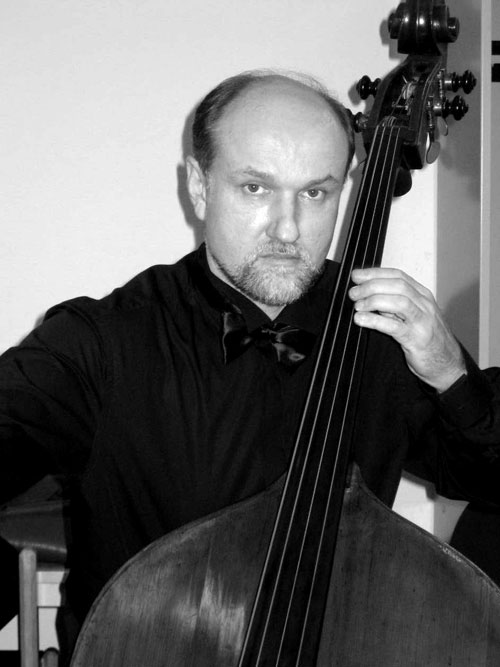 Dorin Marc was born in 1958 in Romania and he is a graduate of the National Music University in Bucharest, class of Prof. Ion Cheptea. During 1981 – 1992 he became a member of the “Transylvania” State Philharmonic from Cluj-Napoca and in parallel, during 1987 – 1992, he was appointed solo double bassist of the “Orchestra Internationale d'Italia".
Dorin Marc was born in 1958 in Romania and he is a graduate of the National Music University in Bucharest, class of Prof. Ion Cheptea. During 1981 – 1992 he became a member of the “Transylvania” State Philharmonic from Cluj-Napoca and in parallel, during 1987 – 1992, he was appointed solo double bassist of the “Orchestra Internationale d'Italia".
Since 1992 he is a solo double bassist of the Philharmonic Orchestra of Munich, under the conducting of Maestro Sergiu Celibidache. Since being appointed as a university professor at the Nürnberg Music Academy in 2003, he dedicates himself predominantly to teaching activities. Ever since his years of study, he was awarded First Prize at the national music contests in 1977, 1979 and 1986. In the latter year he was also awarded the Musical Critique Award.
At the international level, he won awards in prestigious competitions such as: Markneukirchen - Germany, Geneve - Switzerland, ARD Munchen. In 1991, in Mittenwald, Germany, he was awarded not only the First Prize but also the quality of member for life of the International Double Bassist Society.
Dorin Marc has played as a soloist with all the philharmonic orchestras of Romania and he has held recitals and concerts in Bulgaria, Germany, Switzerland, France, Italy, Hungary, Spain, Sweden and Denmark. He recorded with the Romanian Radio-Television, as well as with televisions in Germany and Switzerland. In 1991 he recorded a disc with Electrecord with the double bassist quartet “Mobile”. Together with other valuable Romanian musical instrumentalists, Dorin Marc is actively involved in the preparation of young musicians, members of the National Youth Orchestra founded by the cellist Prof. Marin Cazacu.
Dorin Marin helds classes in artistry at the National Music University of Bucharest, as well as in the entire Europe and he is invited in specialist juries in the international competitions. Currently he is a professor at the Nurnberg-Ausburg Conservatory (Germany) and at the Toscanini Academy in Bologna.
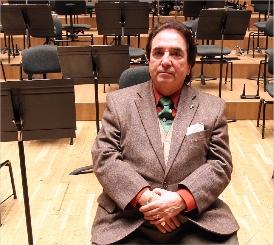 Born in Valencia (Spain), Enrique Garcia Asensio has studied violin, chamber music, harmony, counterpoint and composition at the Royal Music Conservatory of Madrid.
Born in Valencia (Spain), Enrique Garcia Asensio has studied violin, chamber music, harmony, counterpoint and composition at the Royal Music Conservatory of Madrid.
At the age of 11 he is a violinist in the orchestra of the Conservatoire, in which he later becomes a concert maestro and a conductor. He conducted almost all orchestras in Spain.
His international professional activity is undergone in Canada, USA, Mexic, Puerto Rico, Argentina, Uruguay, The Dominican Republic, Brazil, Japan, Island, Bulgaria, Romania, Greece, Israel, Russia, South Africa, North Ireland, Switzerland, England, Portugal, Italy, France, Belgium, Germany, Austria, Holland, Denmark, The Czech Republic and Slovakia.
Enrique Garcia Asensio was Sergiu Celibidache’s assistant at the international conducting classes in Bologna (Italy), Munich (Germany), as well as in the Chigiana Academy of Sienna, Italy. At the Academy of Sienna he participated in all the classes taught by Celibidache (1960, 1961, 1962 and 1963) and he won in his last year the award “The Best Student of the Class”, offered by the Rotary Club of Sienna.
He has taught conducting classes abroad, in Santo Domingo (the Dominican Republic), Kerkrade (Holland), but also in Toledo, Madrid, Valencia, Chauchina (Granada), Minglanilla (Cuenca), Granada, Liria, Buñol, Cullera, Villarreal, Nules, Segorbe, Benicasim, Vall d'Uixó, Montroy, de Algar Palancia and Pinoso, in Valencia. He was named an Honorary Director by numerous prestigious associations like the Musical Union of Liria (Valencia) and the Arts Society of Buñol (Valencia).
He is a Knight of the Saint Caliz Order and a Knight of the Royal Order Santa Maria del Puig. Since 1986 he is a member of the Culture Council of Valencia.
Enrique Garcia Asensio has declared on numerous occasions that the Maestro Sergiu Celibidache was to him like a second father. In addition, he mentions that “the day he met Celibidache, it was like winning the lottery”.
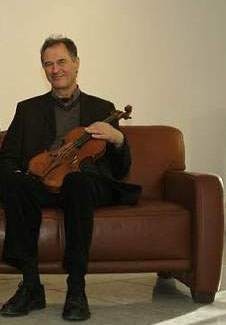 Helmut Nicolai was born in Königsberg, Germania.
Helmut Nicolai was born in Königsberg, Germania.
IDuring his studies at the Music University of Hamburg, he won the Chamber Music Prize offered by the Chamber Music School of Germany and the Bordeaux Bienalle.
In 1967 he joined the Symphonic Orchestra of Hamburg. During 1968 – 1990 he was a member of the Berlin Philharmonic and in 1981 he became solo violist of the Munich Philharmonic.
Outside of his appearances as a solist with Srrgiu Celibidache and the Munich Philharmonic, Helmut Nicolai has had performances on all continents as a member of the Classicum Consortium.
Among his chamber music partners are Christoph Eschenbach, Thomas Brandis, James Galway and Christian Gerhaher.
Helmut Nicolai recorded for EMI, Decca Philips si Orfeo.
In 1992 he became a founding member of the Rosamunde Quartett of Munch, to which he invested all his energy, winning numerous prizes as well as a Grammy nomination.
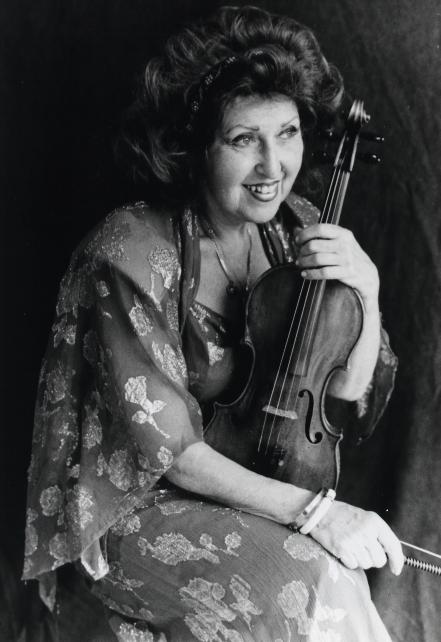 Often called the “Grand Dame of the Violin”, Ida Haendel was born on December 15th 1928 in Poland and started playing the violin at only 3 years old, when she just simply picked up a violin that belonged to her father and played, note-perfect, a song her mother had been singing in another room.
Often called the “Grand Dame of the Violin”, Ida Haendel was born on December 15th 1928 in Poland and started playing the violin at only 3 years old, when she just simply picked up a violin that belonged to her father and played, note-perfect, a song her mother had been singing in another room.
Impressed by his daughter's talent, Ida's father, a portrait painter, moved the family from Chelm in Eastern Poland to a one-room flat in Warsaw to allow Ida to study at the city’s conservatory with the country’s most famous violin teacher, Michalowicz.
At only seven she was a finalist in the prestigious Wieniawski Competition and, in 1933, after a performance of the Beethoven Violin concerto, young Ida won the conservatory gold medal as well as the first Huberman Prize. The prize money allowed her to study abroad, and shortly afterwards her family moved to Britain. There, she studied with one of the violin world’s most celebrated violinists and teachers, Carl Flesh.
In 1937, Ida Haendel had her London debut at Queen's Hall with Sir Henry Wood conducting. She also gave numerous concerts during this time for the British troops. After the war, she continued her studies with the composer, violinist and pianist Georges Enescu. "I was spellbound by Enescu, because I think he was one of the world's great geniuses," she says. "I admired him for his divine violin playing, his brilliant piano playing and as a great composer." She says Enescu’s playing was some of the most inspired she had ever heard. On her latest recording, Haendel performs the Enescu sonata with the pianist Vladimir Ashkenasy -- an homage to her great teacher.
After the war Ida Haendel’s career blossomed and her trademark pieces became the Britten, Walton, Elgar and Sibelius concertos. Composer Jean Sibelius once heard her perform his "Violin Concerto" on the radio and sent her a note of congratulations, praising her work. The piece became her signature work. In 1982, the Sibelius Society awarded Haendel the Sibelius Medal in recognition of her distinguished performances of his Violin Concerto -- just one of many awards and honors the violinist has received in her lifetime.
Her busy performance schedule has taken her to Japan, Poland, England, Turkey and Israel this past season.
Mrs. Handel lives in Miami, Florida and is represented by Patrons of Exceptional Artists. In a dialogue with a masterclass student on how César Franck's violin sonata should sound, Ida Haendel pointed out: "You give everything too soon, but less is more. It's about control and what comes next. Everything is a strategy, like a general preparing for war."
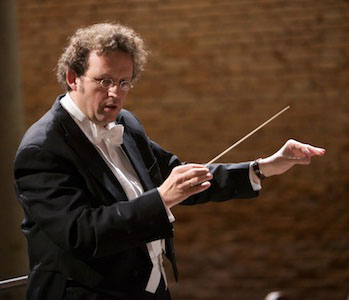 “Wenn das Hinhören und Lauschen die Sprache unserer Seele und unseres Herzens zum Klingen bringen, dann kann Stille zur Musik werden.” / “When listening to music will make the language of our souls and hearts resonate, then silence can become music”
“Wenn das Hinhören und Lauschen die Sprache unserer Seele und unseres Herzens zum Klingen bringen, dann kann Stille zur Musik werden.” / “When listening to music will make the language of our souls and hearts resonate, then silence can become music”
Born in Mitteltal, Black Forest, Mark Mast first studied music in Heidelberg and then in Paris and Munich. He was influenced by Leonard Berstein and especially by his master class studies with Sergiu Celibidache. He began his career as conductor in 1992 in Munich, where he has an intensive artistic and pedagogical activity since 1993 as Principal Conductor and Artistic Director of the Bavarian Philharmony.
For many years he is constantly invited to conduct orchestras in Germany like the Stuttgart Chamber Orchestra, the Philharmonic Orchestra of Baden-Baden, the Heilbronn Chamber Orchestra of Württemberg, the Symphonic Orchestra of Nürnberg, Hof and Munich, but also international orchestras such as the Camerata Athens Chamber Orchestra, Greece, the Latvian National Orchestra of Riga, the Slovenian National Orchestra and the Slovenian Theatre Orchestra, and the Orchestra Ensemble Kanazawa Japan.
He has proven also his versatility beside the symphonic repertoire with opera and ballet performances, as well as film productions. Regular premieres are for him as natural as disputes with composers of the 20th and 21st century and historical performance practice. He regularly works with soloists and artists like Francisco Araiza, Michèle Crider, Enkhjargal Dandarvaanchig, Sir Colin Davis, August Everding, Giora Feidman, Justus Frantz, Loriot, Hellmuth Matiasek, Peter Sadlo, Esa-Pekka Salonen, Ingolf Turban, Michael Volle und Konstantin Wecker.
Since 1998, Mark Mast has been Artistic Conductor and Director of the »Black Forest Music Festival«. As musical director of the Festival »Orff-in-Andechs« he conducted, from 1998 to 2009, all musical theater productions. In 2001, Mark Mast won, together with Konstantin Wecker the German Youth Orchestra Prize and was appointed director of the Sergiu Celibidache Foundation Munich and from 2002 on artistic director of the biannual Sergiu Celibidache Festival.
From 2005 to 2008, Mark Mast worked as principal guest conductor of the Moldavian State Philharmony in Iasi / Romania. In 2008, Mark Mast received the cultural prize »Werner Egk« of the city of Donauwörth, destined to pay tribute to his diverse, successful and earned work as conductor and multiple times artistic director. In 2010, he founded the »Orff-Tage der Bayerischen Philharmonie«, held every year in the Prinzregententheater in Munich and also the project »BayPhil on tour«, which started in 2010 in South-Korea and continued in 2011 in Italy and Russia. Since 2011, Mark Mast has been engaged as ambassador for the intiative »Dein München« and in the same year was elected President of the Jeunesses Musicales Bavaria.
In 2012, Mark Mast directed again, besides his many engagements as chief conductor of the Bavarian Philharmony, the Philharmony Baden-Baden and the South-West German Chamber Orchestra Pforzheim. With German Winds he opened the Richard Strauss Festival in Garmisch-Partenkirchen 2012.
Mark Mast was appointed in 2012 by Fundatia Sergiu Celibidache, artistic director of the anniversary festival »Festival Sergiu Celibidache 100« and conducted the Enescu Philharmonic Bucharest in the closing gala starring the world premiere of Sergiu Celibidache’s Romanian Suite »Haz de Necaz«.
In 2013 he had his debut at the Südwestdeutsche Philharmonie Konstanz and conducted again at the Südwestdeutsches Kammerorchester Pforzheim.
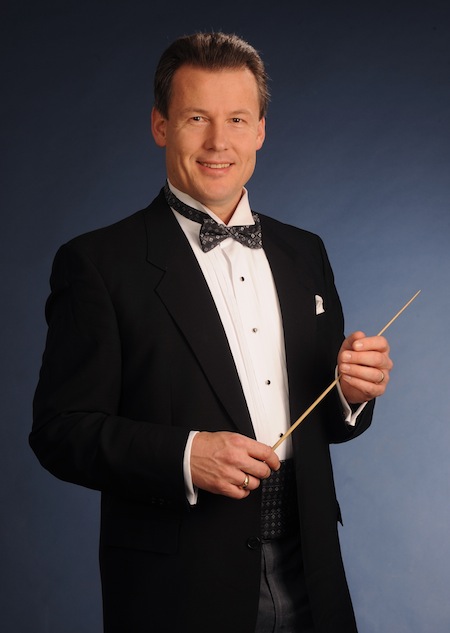 Markus Theinert was born in 1964 in Weingarten, Germany. He grew up in a musical family and at the age of 7 studied piano and voice. Encouraged by his siblings, four of whom are professional musicians, he intensified his musical activities to include double bass, tuba, trombone, euphonium and church organ.
Markus Theinert was born in 1964 in Weingarten, Germany. He grew up in a musical family and at the age of 7 studied piano and voice. Encouraged by his siblings, four of whom are professional musicians, he intensified his musical activities to include double bass, tuba, trombone, euphonium and church organ.
He then studied tuba, piano, conducting and composition while living in Berlin. As a free-lance tuba player, he played in the Berlin Philharmonic, Berlin Radio Symphony and German Opera Orchestra.
In 1987, Markus Theinert was elected as principle tuba of the Schleswig Holstein Festival Orchestra under the direction of Leonard Bernstein and Sergiu Celibidache. It was there that the late Maestro Celibidache discovered the Berlin student and invited him to attend his conducting master classes in Paris, Mainz and Munich.
In December 1987, Mr. Theinert had his conducting debut in Hamburg, after which he began his nine years of intensive conducting and phenomenology studies with Maestro Celibidache. These nine years under Celibidache’s care have remained the most influential period in Theinert’s artistic and personal growth.
In 1992, he became principal conductor of the Brandenburg Chamber Orchestra in Berlin. His musical endeavors have taken him to Japan, Mexico, Great Britain, Spain, Italy, France, Austria, Switzerland, Czech Republic, Russia, South Korea, China and the U.S.
A spotlight in his young career was a concert with the Beaux Arts Trio and the RIAS Symphony Orchestra in the Berlin Philharmonic Hall.
After Celibidache’s death in August of 1996 Markus Theinert intentionally abandoned the tracks of a traditional conducting career and directed his focus on continuous efforts to teach young musicians and conductors about the unique relationship between a liberated human consciousness and the musical phenomena which can under certain circumstances establish the simultaneous experience of unity and transcend the mere physical aspects of sound, a personal revelation he had experienced himself when still attending Maestro Celibidache’s rehearsals and concerts.
In 1998, the Brass Band of Oberschwaben- Allgäu elected him to be their musical director. He also leads the Bavarian Music Association (MON) as Music Director and Professor of Conducting.
In May 2006 the Mannheim Philharmonic Wind Band and Wind Academy has appointed Mr. Theinert their musical director. He also teaches conducting majors at the State University for Music and Drama in Mannheim, Germany.
In addition to his performances as a distinguished tuba soloist and conductor of symphony orchestras, wind bands and choirs all over the world, Markus Theinert is regularly invited to adjudicate international competitions and teach international masterclasses.
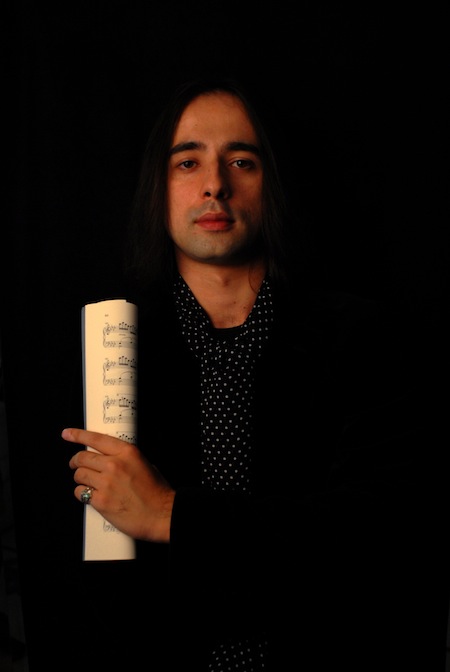 Misha Dacić was born in ex-Yugoslavia, into a family with a musical tradition. He first impressed audiences performing with a local orchestra at the age of eleven. Kemal Gekic, Lazar and Valentina Berman, and Jorge Luis Prats are counted among his mentors. He has been a recipient of support from Patrons of Exceptional Artists.
Misha Dacić was born in ex-Yugoslavia, into a family with a musical tradition. He first impressed audiences performing with a local orchestra at the age of eleven. Kemal Gekic, Lazar and Valentina Berman, and Jorge Luis Prats are counted among his mentors. He has been a recipient of support from Patrons of Exceptional Artists.
After his stunning American debut at the Discovery Series of the Miami International Piano Festival in 2003, Misha Dacić quickly became a sought-after soloist throughout the U.S. and was featured at Ravinia's Rising Stars Series in Chicago, followed by Gilmore Keyboard Festival Rising Stars Recital Series in Kalamazoo, Xavier University Classical Piano Series in Cincinnati, The Golandsky Institute International Piano Festival at Princeton University, and Frederic Chopin Society's Concert Series in Minneapolis among numerous others.
In recent seasons Dacić made his debut in Turkey performing at the prestigious International Antalya Piano Festival, at the Tuebingen Piano Festival in Germany, Takayama Music Festival in Japan, as a guest soloist with the Brazilian Symphony Orchestra at the Tourmaline Pianists Series performing at the Theatro Municipal in Rio de Janeiro, as well as with the National Symphony of Panama at the ASM Festival in Panama City. In 2010 Misha Dacić made his debut in Argentina and his tour in Germany, with performances in Saarbrucken and at Mendelssohn's house in Leipzig among others, was received with greatly acclaim.
Misha Dacić regularly tours Europe, United States and Japan in collaboration with the celebrated violinist Ida Haendel. The last season the duo performed at the National Gallery in London commemorating the legendary Myra Hess Tribute of the War Concerts.
Celebrating Franz Liszt 200th Anniversary, Dacić has recorded a ‘Portait of Liszt’ for PianoClassics label and performed a Liszt Marathon for the 2011 Master Series of the Miami International Piano Festival, as well as in venues throughout the U.S. and Europe.
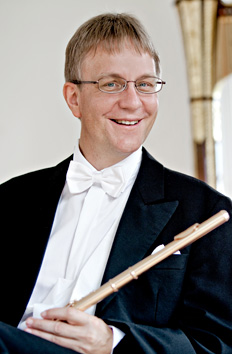 Michael Martin Kofler was born in 1966 in Villach, Austria and he followed music studies at the Music Univeristy of Vienna with Werner Tripp and Wolfgang Schultz. He then studied with Peter- Lukas Graf at the Music Univeristy of Basel, Switzerland.
Michael Martin Kofler was born in 1966 in Villach, Austria and he followed music studies at the Music Univeristy of Vienna with Werner Tripp and Wolfgang Schultz. He then studied with Peter- Lukas Graf at the Music Univeristy of Basel, Switzerland.
In 1987, Sergiu Celibidache invited him to join the Munich Philharmonic as solo flutist. Martin Kofler has been awarded numerous prizes in prestigious competitions (ARD, Brussels, Prague) and is also the beneficiary of the "Cultural Endowment Prizes" awarded by the Concert Society of Munich and by the Austrian state of Carinthia. He has also been awarded: The Award of Honour from the Ministry of Science of Austria, as well as the Prize for Culture of his native city, Villach.
Since 1983 Michael Martin Kofler has held concerts and recitals all over the world, as a soloist as well as a member of famous chamber ensembles. He has thus recorded both on radio and TV, as well as a series of CDs and DVDs.
Martin Kofler regularly holds concerts as a soloist with renowned orchestras such as the Academy of St Martin in the Fields, the Australian Chamber Orchestra, the Budapest Strings, the Chamber Orchestras of Vienna and Munich, as well as the Symphonic Orchestras of the Philharmonics in Munich, Prague, Moscow, Tokyo, Tel Aviv and Warsaw. He played next to great conductors like James Levine, Sir Neville Marriner, Fabio Luisi, Blomstedt Herbert, Brüggen Frans, Koopmann Ton and Jonathan Nott.
Among his music partners are Paul Badura-Skoda, Gage Irwin, Stefan Vladar, Stephan Kiefer, Konrad Ragossnig, Xavier de Maistre, Regine Kofler, Martin Spangenberg, Benjamin Schmid, Clemens and Veronika Hagen, as well as the Mandelring and Mozart Salzburg Quartets.
Since 1989 he is a professor at Salzburg Mozarteum and he is constantly invited in the jury of important international competitions, in addition to being invited to hold masterclasses in Europe, Asia and America.
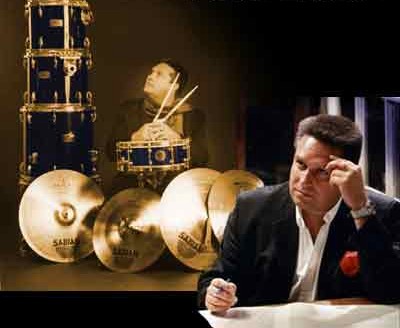 The press names Peter Sadlo “talent of the century”. A hit with the public and critics alike, Peter Sadlo’s extraordinary musical intuition and virtuosity have made him an internationally sought after artist.
The press names Peter Sadlo “talent of the century”. A hit with the public and critics alike, Peter Sadlo’s extraordinary musical intuition and virtuosity have made him an internationally sought after artist.
Peter Sadlo studied at the Konservatorium in Nuremberg and at the Musikhochschule in Wurzburg with Siegfried Fink. He has won numerous first prizes throughout his career including the first-ever percussion awards at both the Concours International Genève (1982) and at the Internationaler Musikwettbewerb der ARD in Munich (1985).
At age 20, Peter Sadlo became solo timpanist at the Munich Philharmonic, a position he held for 15 years and during which time his style was greatly influenced by his collaboration with Sergiu Celibidache. Starting in 1998 he began to concentrate exclusively on his career as a soloist and ensemble leader.
Additionally, Peter Sadlo is Professor of Percussion at the Hochschule für Musik und Theater in Munich and at the University ‘Mozarteum’ in Salzburg. He holds a Doctorate in Musicology from the University of Bucharest and an Honorary Doctorate from the Staatliche Musikakademie in Sofia.
Peter Sadlo has played, and continues to perform, with the following orchestras: RundfunkSinfonieorchester Berlin, Sinfonieorchester des BR, Münchner Philharmoniker, SWR RadioSinfonieorchester Stuttgart, Staatskapelle Weimar, Orchestra Accademia di Santa Cecilia Rome, Orchestra Nazionale Sinfonica della RAI Turin, Nagoya Philharmonic, Peking Symphony Orchestra or Tokyo Metropolitan Symphony and has given recitals at music festivals in Bad Kissingen, Basel, Bremen, Echternach, Ingolstadt, Istanbul, Lockenhaus, MDR Musiksommer, MecklenburgVorpommern, Pollenca, Salzburg, Schwetzingen and Wien.
In addition to his solo performances, he gives concerts with his Ensemble Peter Sadlo & Friends and with chamber music partners including Martha Argerich, Alice Sara Ott, Clemens Hagen or Gidon Kremer.
Composers such as Luciano Berio, Minas Borboudakis, Ferran Cruixent, Moritz Eggert, Harald Genzmer, Sofia Gubaidulina, Hans Werner Henze oder Bertold Hummel have collaborated with Peter Sadlo or have written pieces for him.
He was awarded the "Echo Klassik Preis 1998" as Musician of the Year for his CD "Percussion in Concert." In April 2005, Peter Sadlo was awarded the Soloist European Cultural Award at the Concertgebouw, Amsterdam.
This internationally renowned award, presented by the Europäische Kulturstiftung, recognizes talented individuals who are committed to enriching European culture. Peter Sadlo received the “Bavarian Culture Prize 2006“ from E.ON Bayern AG for his outstanding artistic work.
He is also the Artistic Advisor to the International Music Assemblage "House Marteau" in Lichtenberg / Upper Franconia, where he is responsible for the organization of the world renown master classes for singing, solo instruments and chamber music. On his initiative, a new concert series, "House Marteau on Tour" has been created which showcases the exceptional level of the masterclasses in specially selected venues throughout Upper Franconia.
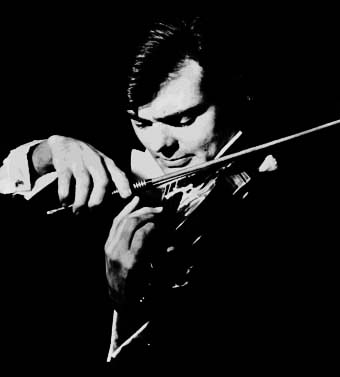 “Rony Rogoff is the only violinist who uses the proper proportion for any given style and the best Mozart player in existence. He is one of the few who understand the meaning behind the notes and is capable of bringing it through.” This is Sergiu Celibidache’s opinion on his former student and long time friend.
“Rony Rogoff is the only violinist who uses the proper proportion for any given style and the best Mozart player in existence. He is one of the few who understand the meaning behind the notes and is capable of bringing it through.” This is Sergiu Celibidache’s opinion on his former student and long time friend.
Rony Rogoff was born in Israel and was taught initially by his father – who was a founding member of the Israel Philharmonic Orchestra – and by Ramy Shevelov. He then studied at the Juilliard School in New York with Ivan Galamian and Dorothy DeLay as well as in Switzerland with Joseph Szigeti.
As a soloist he was accompanied by the Israel Philharmonic Orchestra under Zubin Mehta, as well as by the leading orchestras in Philadelphia, San Francisco, Paris, Madrid, Tokyo, Manila, Caracas, the radio orchestras in Copenhagen and Stuttgart, the Munich Philharmonic, the Orchestre de la Suisse Romande and the Rheinland-Pfalzische Staatsphilharmonie under conductors like Sergiu Celibidache, Leonard Bernstein, Enrique Garcia Asensio, Also Ceccato or Arthur Fiedler.
His solo performances of Bach’s Partitas and Stockhausen’s “Zodiac” at the Lincoln Center in New York have achieved a legendary status and were released by Sony.
Besides being in command of the complete standard repertoire, Rogoff has always dedicated himself to lesser known but valuable works such as the violin concerto of the great Norwegian dodecaphonist Fartein Valen, of which he gave the American Premiere.
In 1982 the famous critic H. H. Stuckenschmidt declared after witnessing Rogoff’s performance of Alban Berg’s violin concerto at the Berlin Festival with the Munich Philharmonic under Celibidache, that this performance “had corresponded more than any other with the last will of its composer, whom he had known personally”.
The long lasting collaboration with Sergiu Celibidache was the most influential in Rogoff’s professional life.
Last but not least, the permanent contact with first class international artists has helped him develop and become one of the most experimented violin professors of our time. Indeed, the teaching activity has grown in importance to Rogoff, engaging him more and more lately. His masterclasses for violin and chamber music from South America, Japan, the Philippines, Italy, Austria (the Mozarteum summer school) and Germany (9 years of continuous work in the BCJ Elze and Berchtesgaden institutions) have become legendary.
He is an extremely appreciated conductor and mentor for orchestras internationally, in Denmark, Spain, Italy, Japan, Germany, South America and the Philippines.
In 1994, Rogoff founded a chamber orchestra with students from Italy. At first situated close to Vicenza and called “I Cameristi – La Scuola di Rony Rogoff”, the orchestra has rapidly won a remarkable reputation and was soon invited to renowned Italian festivals in Bologna and Venice.
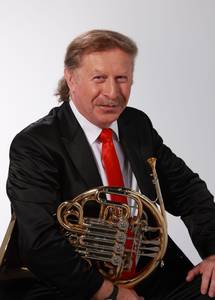 Wolfgang Gaag, born in Waldsassen, has followed sound engineering studies of the Technical University of Berlin and he studied the horn with Alfred Gohlke at the Music Academy of Berlin.
Since his studies he became a solo horn player at the Youth Orchestras RIA and Jeunesses Musicales.
Wolfgang Gaag, born in Waldsassen, has followed sound engineering studies of the Technical University of Berlin and he studied the horn with Alfred Gohlke at the Music Academy of Berlin.
Since his studies he became a solo horn player at the Youth Orchestras RIA and Jeunesses Musicales.
At graduation, in 1969, he gets the position of solo horn player at the Bamberg Symphony Orchestra, then for the Radio Symphony Orchestra of Stuttgart. Shortly after that, Sergiu Celibidache hires him as solo horn player of the Munich Philharmonic. At first a professor at the Music Academy of Stuttgart, he then continues his teaching activities at the Music University of Munich.
Wolfgang Gaag was a member of the Bayreuth Festival Orchestra and a co-founder of the ensembles "Deutsche Bläsersolisten", "German Brass", "Villa Musica" and "Odeon-Konzerte". His diverse activity as a soloist and member of the orchestras and chamber ensembles has brought him close to famous musicians, in concerts held in the most prestigious music halls around the world. He recorded on radio, TV and he also recorded CDs meant to enrich the art and culture.
Lately Wolgan Gaag has directed his attention towards teaching activities, soloist recitals and chamber music. He teaches masterclasses at the Conservatoire Supérieur de Paris, Royal Academy of Music of London, Centro de Arte Reina Sofia of Madris, etc.
He is also a jury member in the international competitions ARD - Germany, Prima la Musica- Italy and the International Horn Competition of Marktneukirchen, Germany.
Liviu Prunaru
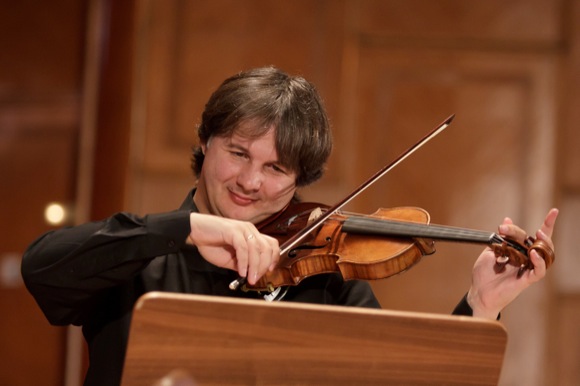 Liviu Prunaru studied first violin in his native city Craiova, continuing his studies at the Menuhin Academy in Switzerland (1990), at the invitation of the violinist Alberto Lysy and later on completing his studies in New York.
Liviu Prunaru studied first violin in his native city Craiova, continuing his studies at the Menuhin Academy in Switzerland (1990), at the invitation of the violinist Alberto Lysy and later on completing his studies in New York.
Liviu Prunaru made his New York City debut with the Juilliard Symphony in Lincoln Center's Alice Tully Hall after capturing the 1st grand prize in the Juilliard Mendelssohn Competition. Also in 1999, Mr. Prunaru won the 1st grand prize at the E. Nakamichi Wieniawski Violin Concerto Competition resulting in performances with the Aspen Young Artists Orchestra.
Violinist Liviu Prunaru has won the top prizes and gained international recognition at all of the most prestigious International Violin Competitions in the world:
- Mr. Prunaru was the 1997 Gold Medallist of the Dong-A International Violin Competition in Korea;
- SilverMedallist of the 1998 Indianapolis International Violin Competition in the USA;
- Silver (2ndGrand Prize) Medallist at the 1993 Queen Elizabeth in Brussels;
- Gold Medallist at the1991 Rodolfo Lipizer International Violin Competition in Italy;
- Gold Medallist at the R.Molinari Violin Competition in Switzerland, among many others.
and many more.
Liviu Prunaru has been featured as a soloist with: the Royal Philharmonic Orchestra, the London Symphony Orchestra, Belgium National Orchestra, Westdeutsche Sinfonia, Athens Philharmonic Orchestra, Bucharest Radio-Symphony Orchestra, Orchestra Mayo of Buenos Aires, Indianapolis Chamber Orchestra, the Juilliard Symphony and the Puchon Philharmonic Orchestra in Korea among many others.
Mr. Prunaru has collaborated with many renowned conductors including Lord Yehudi Menuhin, Yuri Simonov, Andrew Litton, Peter Braschkat, Georges Octors, Cristian Mandeal, Lukas Vis, Horia Andreescu, Mario Benzecry and Park Eun Seong.
Liviu Prunaru has completed his professional studies with Miss Dorothy DeLay in New York, where he also actively participated in Master Classes with Itzakh Perlman. Currently a professor at the Menuhin Academy in Switzerland, Mr. Prunaru is performing on a 1676 Guarneri violin graciously loaned to him by Professor M. Muller.
In 2006 there have been 14 years since the violinist teaches at the Menuhin Academy and also in 2006 he became a Concert Maestro at the Royal Concertgebouw Orchestra in Amsterdam – rated in 2008 as the best orchestra in the world. Liviu Prunaru is currently Artistic Director of the famous Menuhin Academy, thus having the honor of carrying forward the tradition of this prestigious institution.
The “George Enescu” Philharmonic

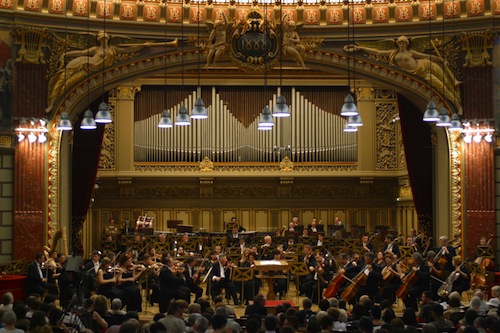 The “George Enescu” Philharmonic was founded in 1868, under the name the “Romanian Philharmonic Society” and with Eduard Wachmann as conductor.
The “George Enescu” Philharmonic was founded in 1868, under the name the “Romanian Philharmonic Society” and with Eduard Wachmann as conductor.
The main objective of the philharmonic was the organization of a permanent symphonic orchestra, in view of spreading music culture and in order to bring to the attention of the Romanian public the masterpieces of classical music. Under the conducting of its initiator, the “Philharmonic Society” had its debut concert in December of the same year.
Once the palace of the Romanian Athenaeum was inaugurated on March 5th 1889, the concerts were scheduled in this music hall, as it is the case today too. The Romanian Athenaeum has become an emblem of Romanian culture and the headquarters of the Philharmonic.
The successor of Wachmann, who let the Philharmonic until 1907, was Dimitrie Dinicu (1868-1936), followed since 1920 by George Georgescu (1887 -1964), a remarkable conductor and a student of Arthur Nikisch and Richard Strauss.
Under the leadership of George Georgescu, the repertoire has been modernized and the Philharmonic entered the international music circuit, by participating in its first concerts abroad and by inviting great music personalities from the time between the two world wars, such as: Jacques Thibaud, Pablo Casais, Igor Stravinski, Enrico Mainardi, Alfred Cortot, Maurice Ravel, Richard Strauss, Yehudi Menuhin, Herbert von Karajan.
After the war, the institution diversified its activity: the Academic Choir is founded, as well as a valuable body of soloists and varied chamber music ensembles (from orchestras to trios and piano). After the death of George Enescu in 1955, the Philharmonic has been endowed with his name. At the helm of this music institution have been Constantin Silvestri, Mircea Basarab, Dumitru Capoianu, Ion Voicu, Mihai Brediceanu.
After the fall of the communist regime, the “George Enescu” Philharmonic has regained its initial fame through the leadership of the general director Cristian Mandeal and of the artistic director Nicolae Licaret. During the mandate of its main conductor Cristian Mandeal (1991 – 2010), the Philharmonic Orchestra has recorded integrally the symphonic works of George Enescu and Johannes Brahms.
Besides its current symphonic concerts and chamber music concerts (approximately 300 every year), the Philharmonic has recorded tens of LPs and CDs and has undergone prestigious tours in Europe, Asia and the Extreme Orient, thus winning well-deserved international acclaim.
The “Moldova” State Philharmonic of Iasi

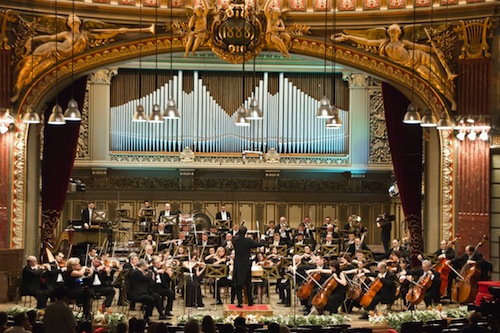 The “Moldova” State Philharmonic of Iasi, a music institution with permanent artistic activity, had its debut concert on October 9th 1942, under the conducting of George Enescu.
The “Moldova” State Philharmonic of Iasi, a music institution with permanent artistic activity, had its debut concert on October 9th 1942, under the conducting of George Enescu.
The Iasi choir ensemble, created through the efforts of the professor George Pascu and the then director of the Philharmonic – composer Achim Stoia – is one of the first ensembles in its genre in Romania.
Its name comes from the great Romanian composer and conductor “Gavriil Musicescu”. Thus followed the first great performances in Iasi of Beethoven’s IXth Symphony (on June 4th 1954), Mozart’s Requiem (May 27th 1955), Haydn’s “The Seasons” oratorio (April 26th 1957), Verdi’s Requiem (February 17th 1961) and Carl Orff’s “Carmina Burana” cantata (January 19th 1962).
In 1962 the young conductor Ion Baciu is appointed as conductor of the symphonic orchestra of Iasi and he soon becomes a music personality of Iasi. He has noticed like none other certain characteristics typical to the Iasi instrumentalist school, among which, for example, a particular local predisposition for the string instruments. Ion Baciu created what the master Elenescu called a “symphonic team”, and the musicologist Iosif Sava – “Baciu’s Stradivarius”. A tipping point of the Baciu era is the performance of “Oedipus” first in Iasi in 1975, then in Bucharest in 1981, on the occasion of George Enescu’s 100th anniversary.
The Iasi Philharmonic has become an appreciated and acclaimed artistic presence, both on the stages in Romania and on the stages abroad – the “Beethoven” Music Hall in Bonn, the Antique Theatre of Macerata (Italy), Concertgebouw of Amsterdam, Meistersingersaal of Nurnberg, the “Edvard Grieg” music hall of Bergen (Norway), the Gaveau music hall of Paris, the Auditorium in Madrid, the Gewandhaus of Leipzig, the Tonhalle of Zurich, Gasteig of Munich. It performed in New York, Washington, Chicago, San Francisco, Boston and Los Angeles, Vancouver, Edmonton, Ottawa, Toronto, Montreal, etc.
For two decaded now, the symphonic orchestra of the Iasi Philharmonic performs annually in the final stage and the gala of the laureates at the International Contest “Grand Prix Maria Callas” in Athens (its first participation was in 1990).
During 1995 – 2011, next to Gheorghe Costin, the conductor of the Iasi orchestra was the young and talented Camil Marinescu; and during 1998 – 2009, the two were joined by a third – Alexandru Lascae.
At present, the Symphonic Orchestra has 63 permanent members and 10 collaborators and the Academic Choir “Gavriil Musicescu” has 59 full members and 10 permanent collaborators.
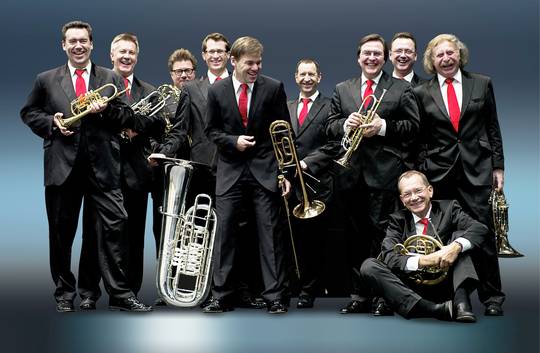 German Brass is both tradition and progress. It was founded in 1974 by Enrique Crespo and has since a synonym for brass music at its highest level and has influenced it decisively ever since.
German Brass is both tradition and progress. It was founded in 1974 by Enrique Crespo and has since a synonym for brass music at its highest level and has influenced it decisively ever since.
German Brass has succeeded in creating "diversity in unity", i.e. to work the miracle of producing a unique, unmistakable collective sound with ten individualists and renowned soloists from outstanding first-class German orchestras. As an ensemble they play transparent chamber music but at the same time with symphonic magnificence and dynamics that only brass instrumentalists can produce.
The repertoire of German Brass includes all stylistic directions and kinds from Scheidt to Shostakovich, from Dixieland to Bossa Nova. It contains unabashedly classical and "timeless", serious and entertaining elements
In their concerts the ensemble nurtures and surmounts the division in two kinds of musical styles with professionalism and fun: the programs contain arrangements of classical works as well as adaptations and compositions of musical evergreens which have mostly been arranged and composed specially for German Brass and pay tribute to the typical sound and the technical brilliance of the ensemble.
Listening to one of the concerts of German Brass, presented by Klaus Wallendorf of the ensemble with inimitably witty and entertaining comments as well as to one of the many recordings on CD is quite an experience.
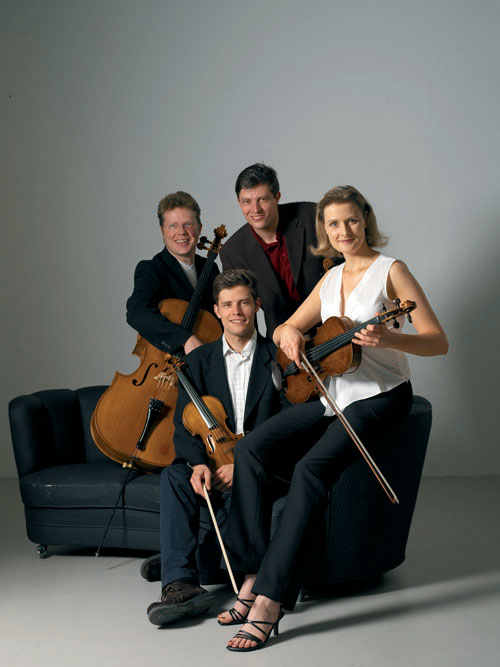 The Henschel Quartet is a German string quartet comprising the Henschel siblings; Christoph and Markus (Violinists) and Monika (Violist) and, the cellist, Mathias Beyer-Karlshøj, who joined them in 1994.
The Henschel Quartet is a German string quartet comprising the Henschel siblings; Christoph and Markus (Violinists) and Monika (Violist) and, the cellist, Mathias Beyer-Karlshøj, who joined them in 1994.
During their study years with Felix Andrievsky, Thorleif Thedeen, Sergiu Celibidache, Franz Beyer, Amadeus Quartet and later on with the members of the Alban Berg and La Salle Quartetts, the young artists have risen to the highest standards.
The Henschel Quartett has had recitals both at Aldeburgh Festival (1994) and Tanglewood Music Festival (1995/1996). At the latter, they were coached by the legendary musicians Louis Krasner and Eugene Lehner, who had themselves worked with composers such as Béla Bartók and Arnold Schönberg, and, who gave the quartet unique insights into the works of the Second Viennese School.
In 1995 the Henschel Quartet were prize-winners of no less than five prizes at International String Quartet competitions in Evian, Banff and Salzburg for the best interpretation of works ranging from Mozart up to contemporary composers.
In 1996 they won the first prize and gold medal at the coveted Osaka International String Competition. Highly acclaimed debut concerts in many of Europe's prestigious concert halls helped to firmly establish the Henschel Quartet as one of today's leading string quartets. Constant critical acclaim has led to an impressive international career.
Some of their famous tours include USA, Mexico, China, Japan, Germany, Italy, Spain, Scandinavia, and England. In March 2010 the Henschel Quartet had the great honour to perform for Pope Benedikt XVI in Vatican celebrating the Holy Fathers nameday. The Henschel Quartet has recently played its third BBC Proms appearance, the Premiere of a newly discovered string quintet by Max Bruch at the Wigmore Hall London, appeared at Brussels Bozar as “Cultural Ambassadors” for Germany and performed at the re-opening of the Anna-Amalia Library in Germany (UNESCO World Culture Heritage).
The Henschel Quartet has been invited to present its fourth concert at the Royal Spanish Palace Palacio Real on the set of the 4 Royal Stradivarius instruments in March 2012. In June 2012 the Henschel Quartet will be the first European string quartet in 20 years to perform a complete Beethoven cycle at Suntory Hall Tokyo.
Among those who have performed with the Henschel Quartet are members of the Amadeus Quartet, Sharon Kam, Till Fellner, Anna Gourari, Julie Kaufmann, Christian Elsner, Magdalena Kozena and on a permanent basis with trio con brio Copenhagen. Each summer the Henschel Quartet presents its own festival in the old monastery of Seligenstadt in Germany. In 2007 this festival celebrated its 10th anniversary.
The Quartet's teaching activities takes them to major conservatories at home and abroad, to American universities as e.g. the MIT Boston, Boston Conservatory, the University of California, in Australia to the Victorian College of the Arts Melbourne and other Melbourne faculties, in England to the Dartington Summer School. Along with the ministry of education of Bavaria the Henschel Quartet`s society in February 2010 introduced culture sponsorships by Rotary Clubs for students.
In 2006 the Henschel Quartet was officially appointed musical Ambassadors of the SOS Children`s Villages.
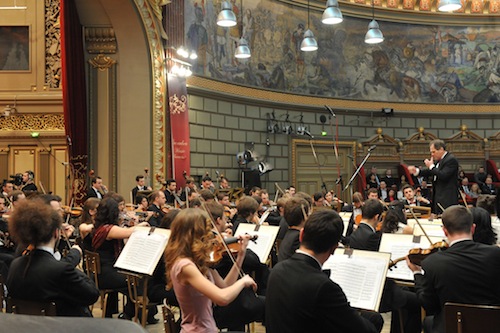 The first symphonic youth orchestra of Romania was founded in Sinaia in the summer of 2008, at the initiative of its violinist and artistic director, Marin Cazacu and with the support of the Foundation “Friends of music – Serafim Antropov”.
The first symphonic youth orchestra of Romania was founded in Sinaia in the summer of 2008, at the initiative of its violinist and artistic director, Marin Cazacu and with the support of the Foundation “Friends of music – Serafim Antropov”.
Its members, the majority of whom between 18 and 28 years old are selected from among the best young musicians at the national level. The technical and artistic preparation is provided ever since the founding by the maestro Cristian Mandeal.
The concerts held in 2008, 2009, 2010 and 2011 within the International Festival “Enescu and the music of the world” in Sinaia, Busteni, Sibiu, Brasov and Bucharest “have constituted a real triumph”. The stunning performances on the stage of the Romanian Athenaeum beginning with 2009, within the extraordinary concerts December Music Flavours and Spring Music Flavours, organized by Lanto Communication, as well as the extraordinary concert “Eurovision – Young musicians”, were all greatly appreciated by the public and received great critical acclaim.
The impressive evolution and the successes obtained in these four years of existence that culminated with the presence within the “George Enescu” International Festival on September 23rd 2011, confirm the expectations.
In November 2011, the Orchestra became a member of EFNYO (European Federation of National Youth Orchestras) and recently, on January 28th and 31st 2012, it was invited to hold concerts in Paris and Strasbourg, as part of a European cultural project.
For this year, besides the 8 concerts that will be held in Romania in Bucharest, Sinaia, Brasov and Sibiu, the National Youth Orchestra is invited to hold an extraordinary concert within the International Festival “Young Euro Classic “ in Berlin on August 4th 2012.
“It is that type of collective artistic organism that stands for the quintessence of optimism. Of trust in the future. A better one, of course. It is an artistic entity that many countries wish to have. And in case they do, it should be comparable to the one I listened to at the Romanian Athenaeum, under the name of the Romanian Youth Orchestra.” (Oltea Serban-Parau).







